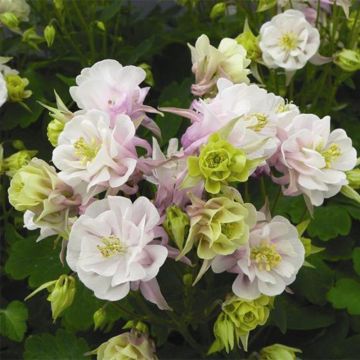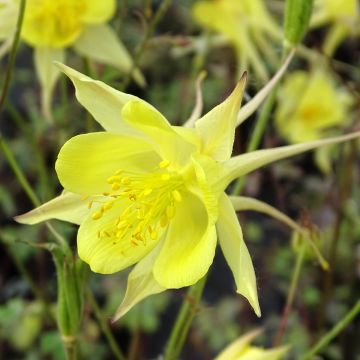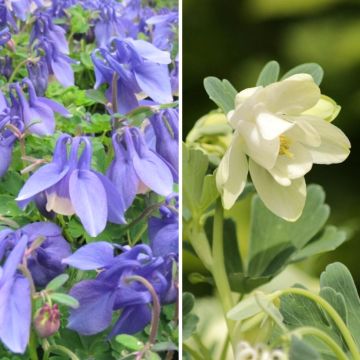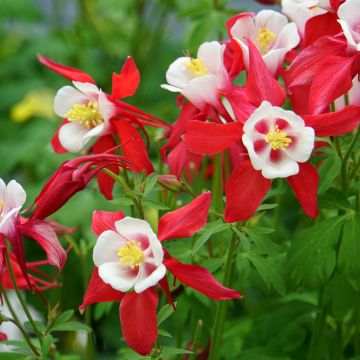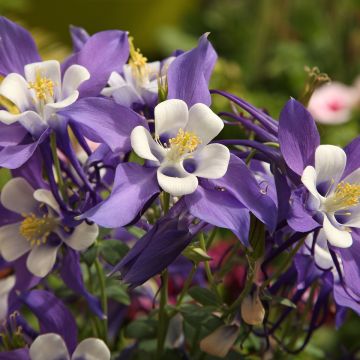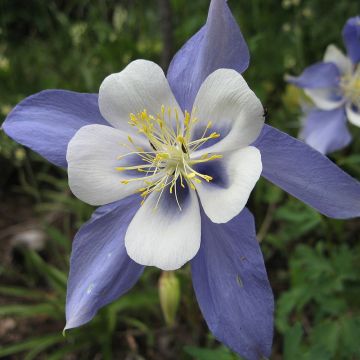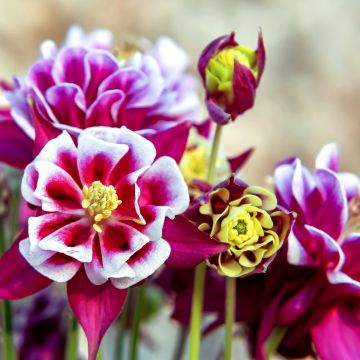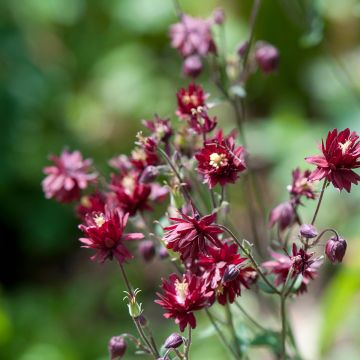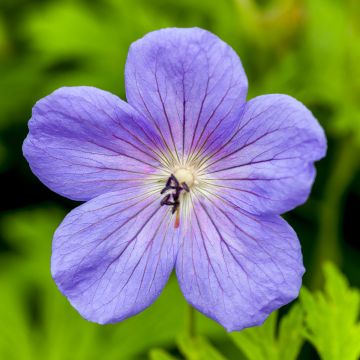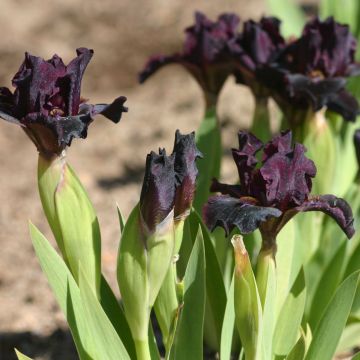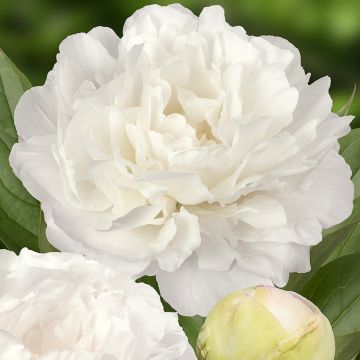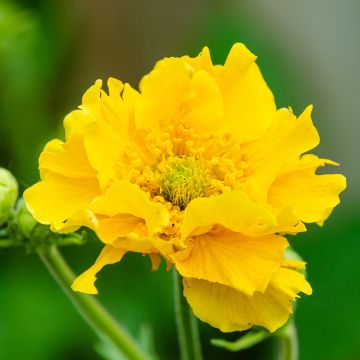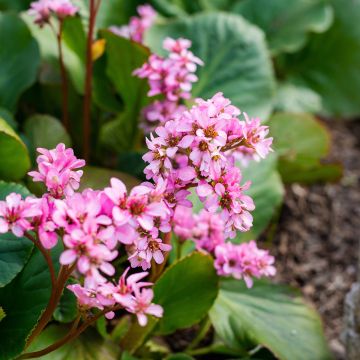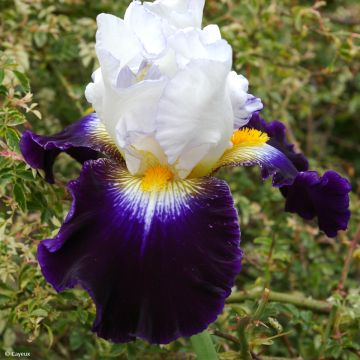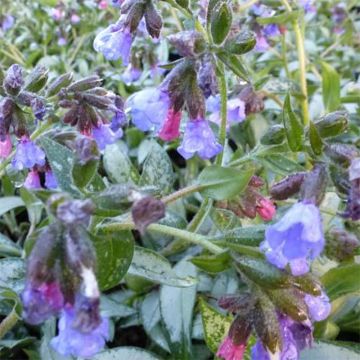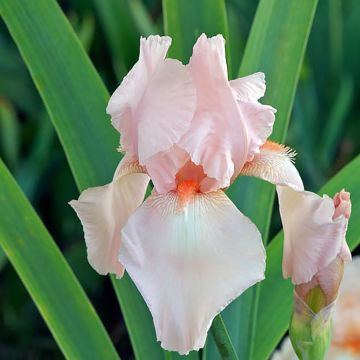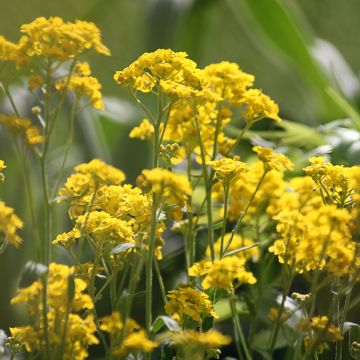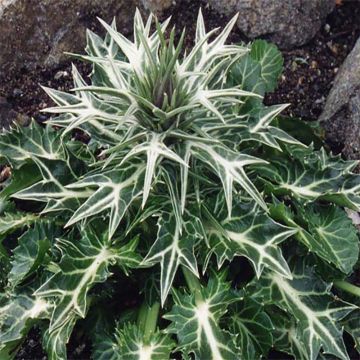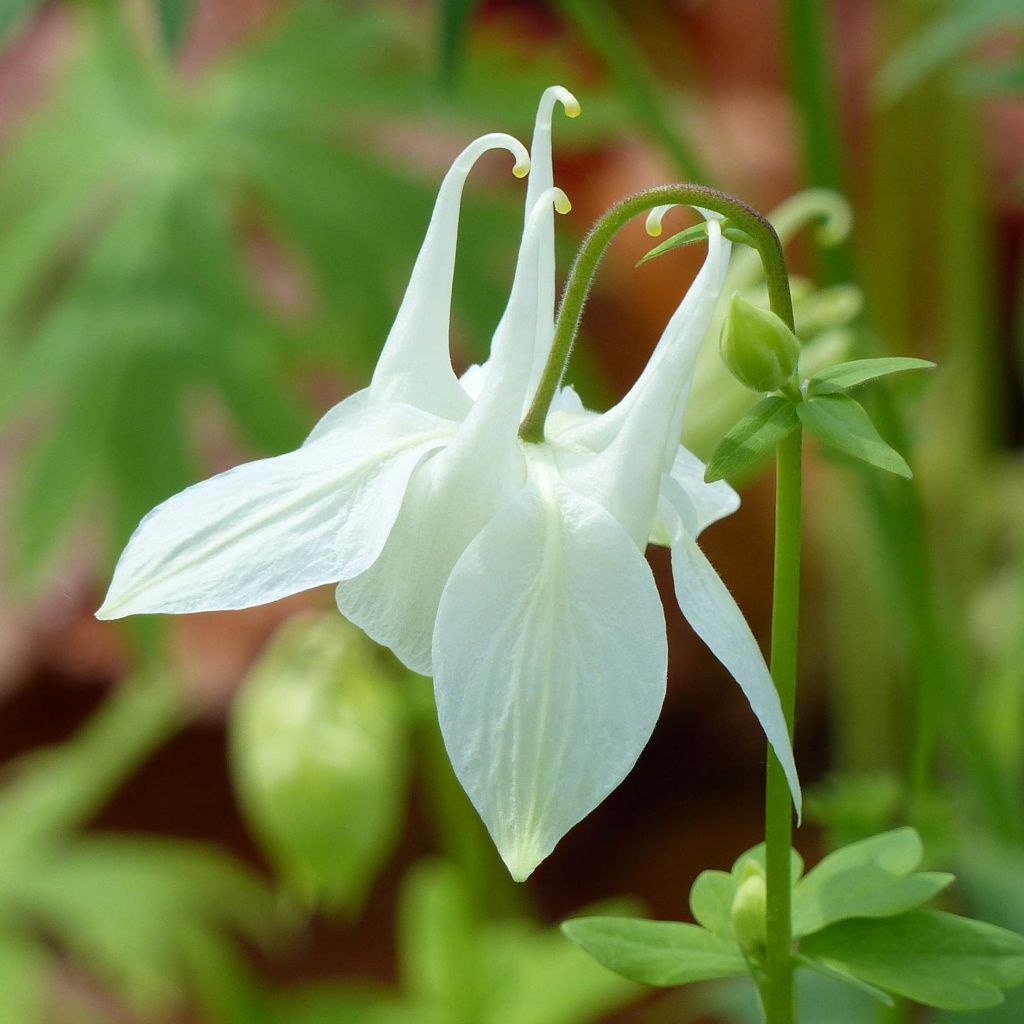

Aquilegia vulgaris Munstead White - Columbine
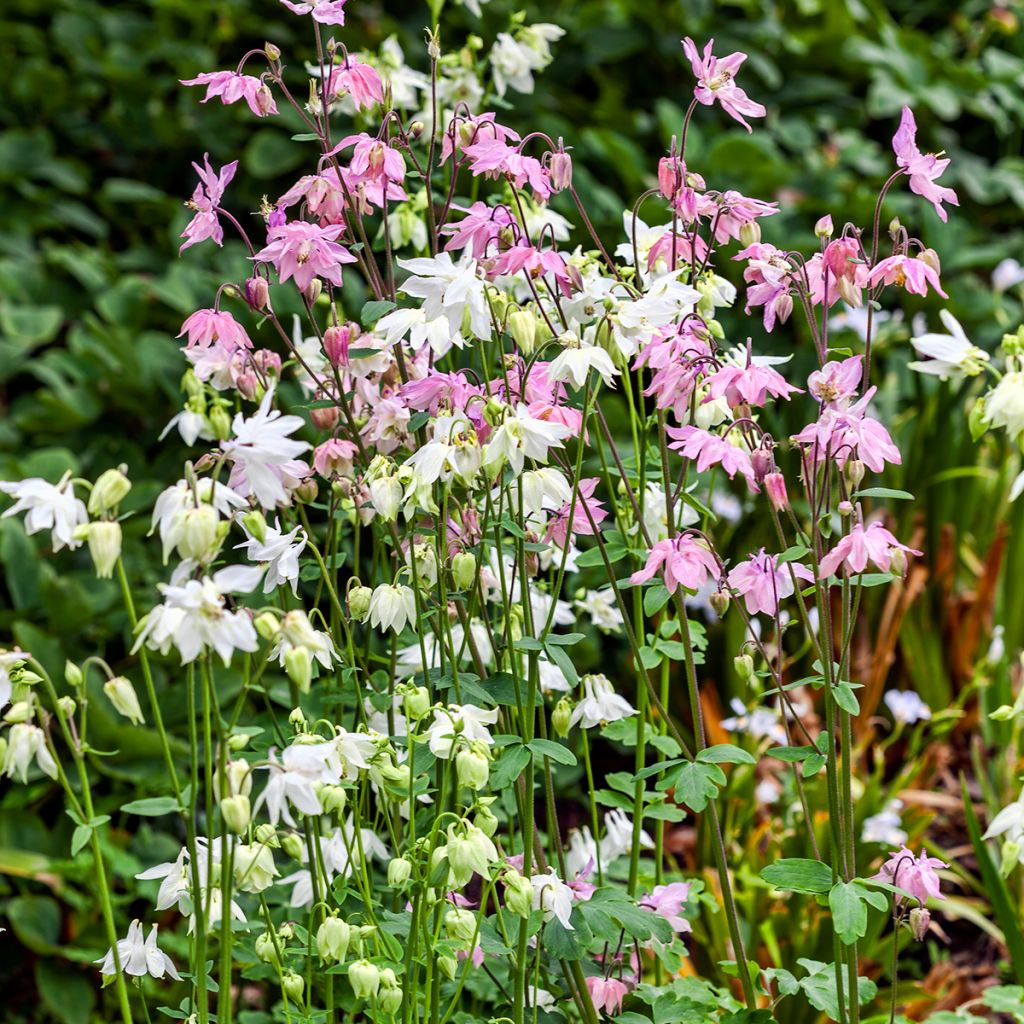

Aquilegia vulgaris Munstead White - Columbine
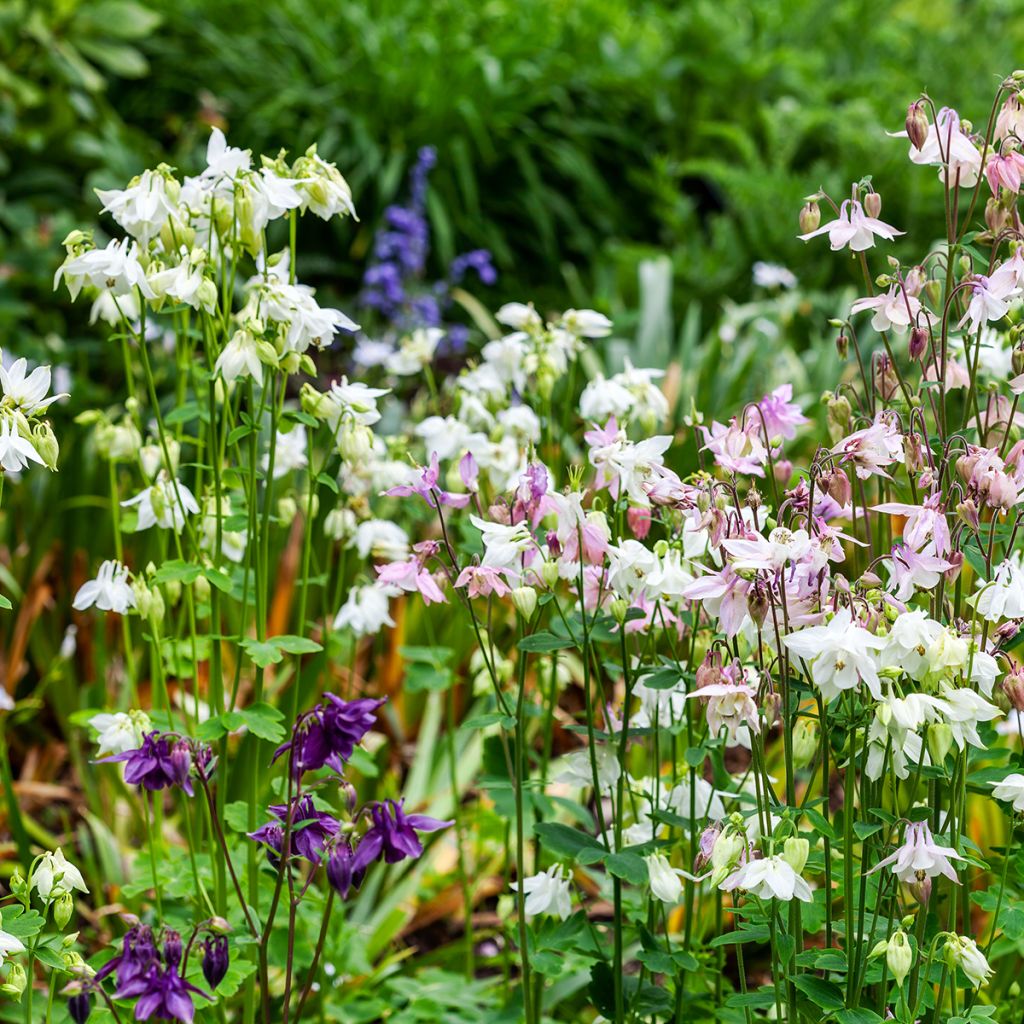

Aquilegia vulgaris Munstead White - Columbine
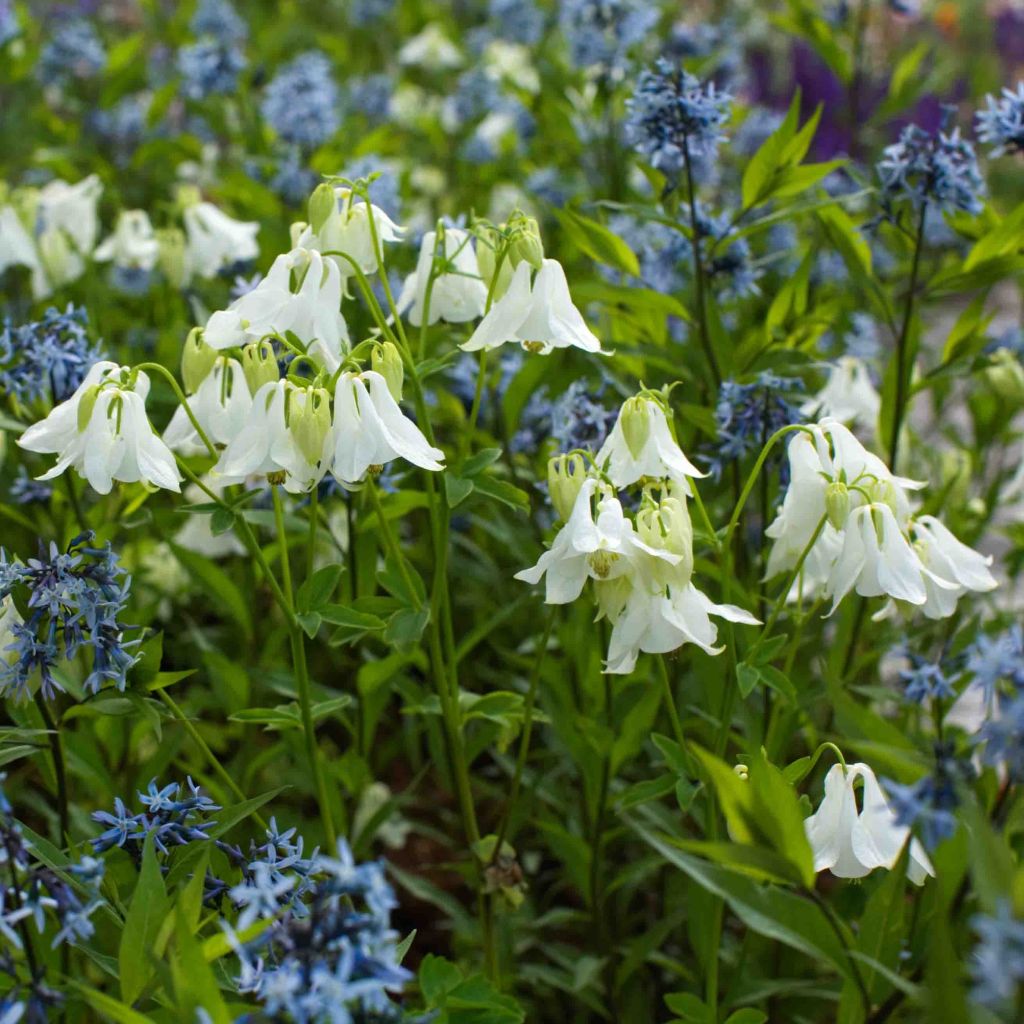

Aquilegia vulgaris Munstead White - Columbine
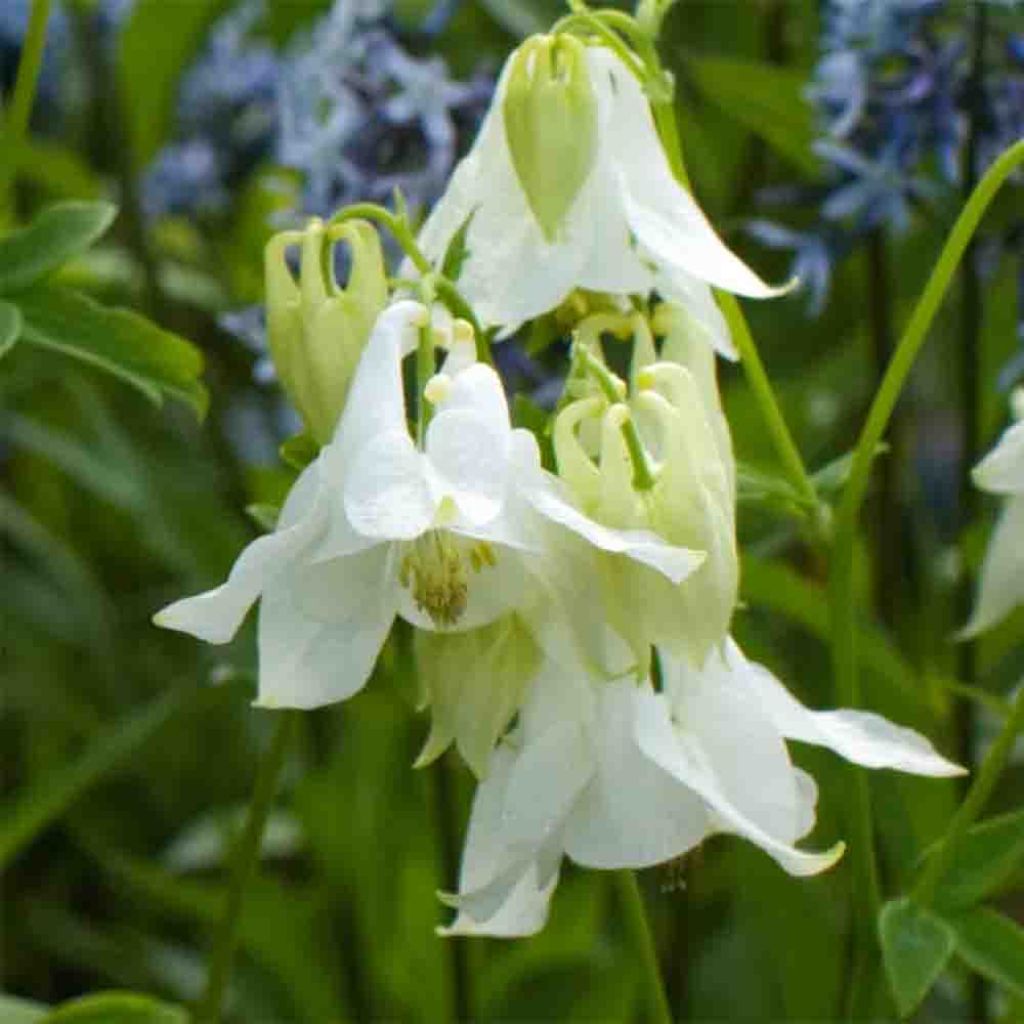

Aquilegia vulgaris Munstead White - Columbine
Aquilegia vulgaris Munstead White - Columbine
Aquilegia vulgaris var.nivea Munstead White
European Columbine, Common Columbine, Granny's Nightcap, Granny's Bonnet
Meets my expectations
Ophelie C., 18/05/2018
This item cannot be shipped to the selected country
Delivery charge from €5.90
More information
Schedule delivery date,
and select date in basket
This plant carries a 12 months recovery warranty
More information
We guarantee the quality of our plants for a full growing cycle, and will replace at our expense any plant that fails to recover under normal climatic and planting conditions.
From €5.90 for pickup delivery and €6.90 for home delivery
Express home delivery from €8.90.
Does this plant fit my garden?
Set up your Plantfit profile →
Description
Aquilegia vulgaris 'Munstead White' is a very beautiful pure white variety, a small wonder of natural elegance. Almost wild, it is a white strain of the garden columbine that naturally grows in the famous English garden at Munstead Wood. This perennial forms tidy clumps that produce floral stems of at least 45 cm (18in) in spring. This unassuming plant is remarkably perennial, easy to grow in any terrain, requires no special care, reliably self-seeds, and easily naturalizes in a shady garden or woodland.
Aquilegia vulgaris 'Munstead White' belongs to the buttercup family. It is an endemic cultivar in Munstead Wood Garden. It is derived from Aquilegia vulgaris (or clematiflora), native to Europe, North Africa, and temperate Asia, where it grows in meadows and clearings of deciduous woods. It is a very hardy herbaceous perennial, forming an upright, leafy clump, reaching a height of 40 cm, and a width of 30 cm (12in), from which long floral spikes rise upwards. From May to June, up to 60 cm (24in) tall stems emerge, on top of which charming single flowers bloom, grouped in 2 or 3 and facing upwards. They have long-horned spurs, with immaculate white corollas. Its deciduous bluish-green foliage is quite decorative, and the serration of the basal leaves gives a sense of lightness.
Columbines were already cultivated in the flower beds of the Middle Ages, and cottage gardens have perpetuated the tradition. Compact and discreet, they are essential in mixed borders, where they will bring lightness and charm. They can be planted in many places in the garden, in the middle of a perennial bed, in a border, at the base of bushes, on the edge of woodlands or on a slope. They will look magnificent when planted in groups to create a dense clump. Pick them when they are just opening for beautiful country-style bouquets. In woodlands, with a 'wild garden' spirit, you can associate 'Munstead White' with all kinds of perennials, such as ferns, foxgloves, Bleeding Hearts, or corydalis.
Report an error about the product description
Aquilegia vulgaris Munstead White - Columbine in pictures
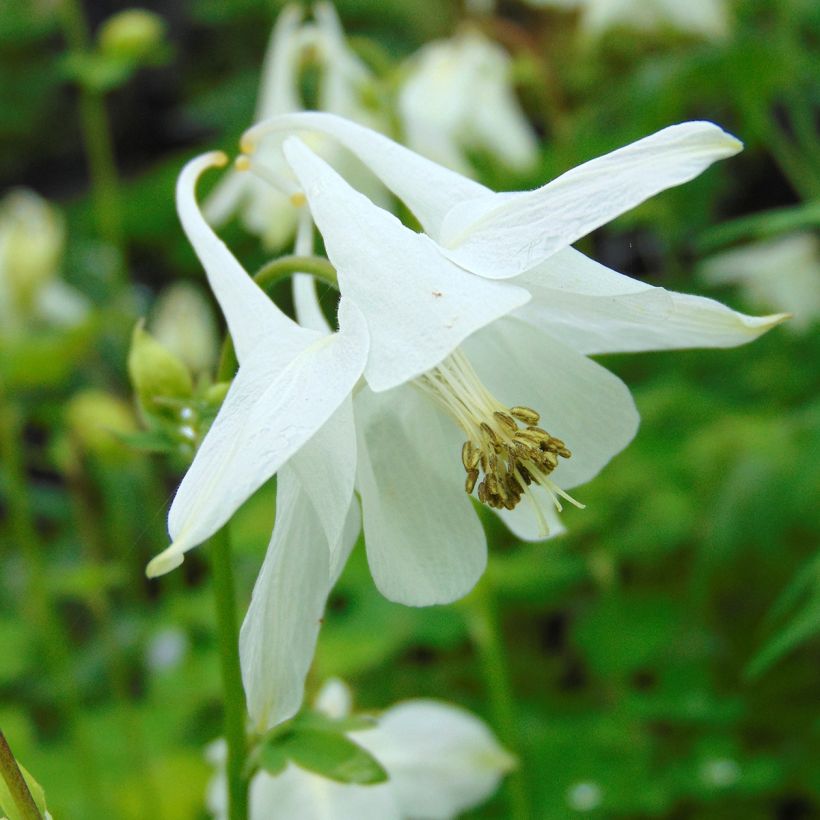

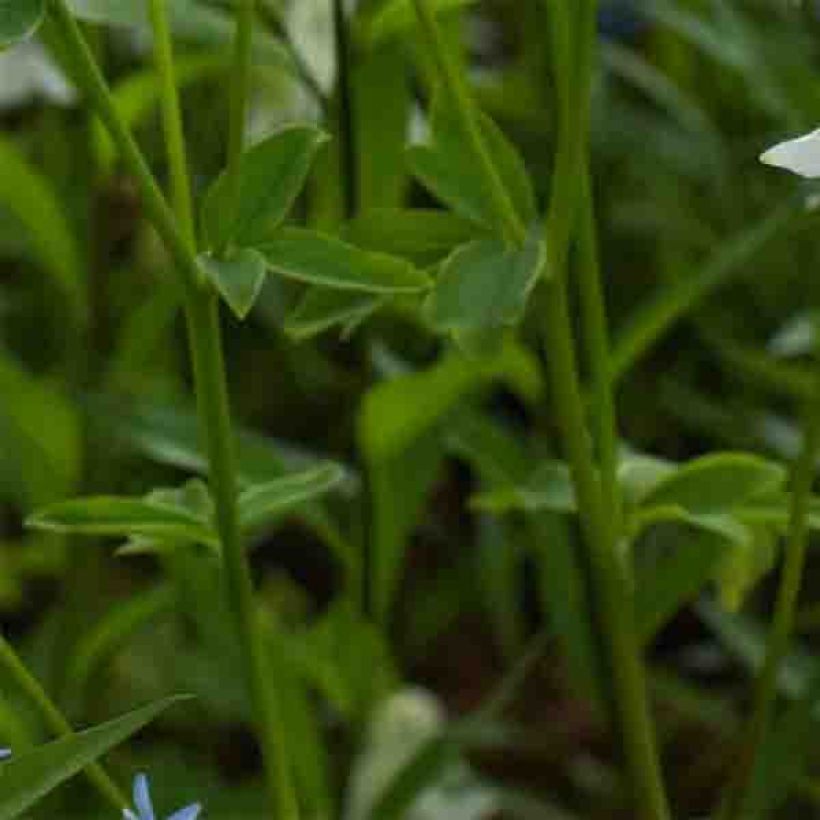



Flowering
Foliage
Plant habit
Botanical data
Aquilegia
vulgaris var.nivea
Munstead White
Ranunculaceae
European Columbine, Common Columbine, Granny's Nightcap, Granny's Bonnet
Cultivar or hybrid
Other Aquilegia
Planting and care
Aquilegia vulgaris 'Munstead White' has great hardiness and excellent longevity and thrives in any exposure, with a preference for dappled sun or light shade. Ordinary soil, even limestone, suits it as long as it is light and humus-rich. Planting is best done in spring, from March to April, or in September. Very resistant to diseases, it can however sometimes be attacked by aphids and caterpillars and attack by snails and slugs is common on young plants. Aquilegias easily self-seed in the garden, so leave a few flower stalks after flowering to produce seeds. Only keep the stems of the most vigorous plants, as this operation exhausts the plant and reduces its longevity. The variety 'Munstead Wood' reliably self-seeds in the undergrowth, in light soil.
Planting period
Intended location
Care
-
, onOrder confirmed
Reply from on Promesse de fleurs
Spring flowering perennials
Haven't found what you were looking for?
Hardiness is the lowest winter temperature a plant can endure without suffering serious damage or even dying. However, hardiness is affected by location (a sheltered area, such as a patio), protection (winter cover) and soil type (hardiness is improved by well-drained soil).

Photo Sharing Terms & Conditions
In order to encourage gardeners to interact and share their experiences, Promesse de fleurs offers various media enabling content to be uploaded onto its Site - in particular via the ‘Photo sharing’ module.
The User agrees to refrain from:
- Posting any content that is illegal, prejudicial, insulting, racist, inciteful to hatred, revisionist, contrary to public decency, that infringes on privacy or on the privacy rights of third parties, in particular the publicity rights of persons and goods, intellectual property rights, or the right to privacy.
- Submitting content on behalf of a third party;
- Impersonate the identity of a third party and/or publish any personal information about a third party;
In general, the User undertakes to refrain from any unethical behaviour.
All Content (in particular text, comments, files, images, photos, videos, creative works, etc.), which may be subject to property or intellectual property rights, image or other private rights, shall remain the property of the User, subject to the limited rights granted by the terms of the licence granted by Promesse de fleurs as stated below. Users are at liberty to publish or not to publish such Content on the Site, notably via the ‘Photo Sharing’ facility, and accept that this Content shall be made public and freely accessible, notably on the Internet.
Users further acknowledge, undertake to have ,and guarantee that they hold all necessary rights and permissions to publish such material on the Site, in particular with regard to the legislation in force pertaining to any privacy, property, intellectual property, image, or contractual rights, or rights of any other nature. By publishing such Content on the Site, Users acknowledge accepting full liability as publishers of the Content within the meaning of the law, and grant Promesse de fleurs, free of charge, an inclusive, worldwide licence for the said Content for the entire duration of its publication, including all reproduction, representation, up/downloading, displaying, performing, transmission, and storage rights.
Users also grant permission for their name to be linked to the Content and accept that this link may not always be made available.
By engaging in posting material, Users consent to their Content becoming automatically accessible on the Internet, in particular on other sites and/or blogs and/or web pages of the Promesse de fleurs site, including in particular social pages and the Promesse de fleurs catalogue.
Users may secure the removal of entrusted content free of charge by issuing a simple request via our contact form.
The flowering period indicated on our website applies to countries and regions located in USDA zone 8 (France, the United Kingdom, Ireland, the Netherlands, etc.)
It will vary according to where you live:
- In zones 9 to 10 (Italy, Spain, Greece, etc.), flowering will occur about 2 to 4 weeks earlier.
- In zones 6 to 7 (Germany, Poland, Slovenia, and lower mountainous regions), flowering will be delayed by 2 to 3 weeks.
- In zone 5 (Central Europe, Scandinavia), blooming will be delayed by 3 to 5 weeks.
In temperate climates, pruning of spring-flowering shrubs (forsythia, spireas, etc.) should be done just after flowering.
Pruning of summer-flowering shrubs (Indian Lilac, Perovskia, etc.) can be done in winter or spring.
In cold regions as well as with frost-sensitive plants, avoid pruning too early when severe frosts may still occur.
The planting period indicated on our website applies to countries and regions located in USDA zone 8 (France, United Kingdom, Ireland, Netherlands).
It will vary according to where you live:
- In Mediterranean zones (Marseille, Madrid, Milan, etc.), autumn and winter are the best planting periods.
- In continental zones (Strasbourg, Munich, Vienna, etc.), delay planting by 2 to 3 weeks in spring and bring it forward by 2 to 4 weeks in autumn.
- In mountainous regions (the Alps, Pyrenees, Carpathians, etc.), it is best to plant in late spring (May-June) or late summer (August-September).
The harvesting period indicated on our website applies to countries and regions in USDA zone 8 (France, England, Ireland, the Netherlands).
In colder areas (Scandinavia, Poland, Austria...) fruit and vegetable harvests are likely to be delayed by 3-4 weeks.
In warmer areas (Italy, Spain, Greece, etc.), harvesting will probably take place earlier, depending on weather conditions.
The sowing periods indicated on our website apply to countries and regions within USDA Zone 8 (France, UK, Ireland, Netherlands).
In colder areas (Scandinavia, Poland, Austria...), delay any outdoor sowing by 3-4 weeks, or sow under glass.
In warmer climes (Italy, Spain, Greece, etc.), bring outdoor sowing forward by a few weeks.

































